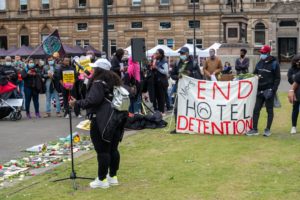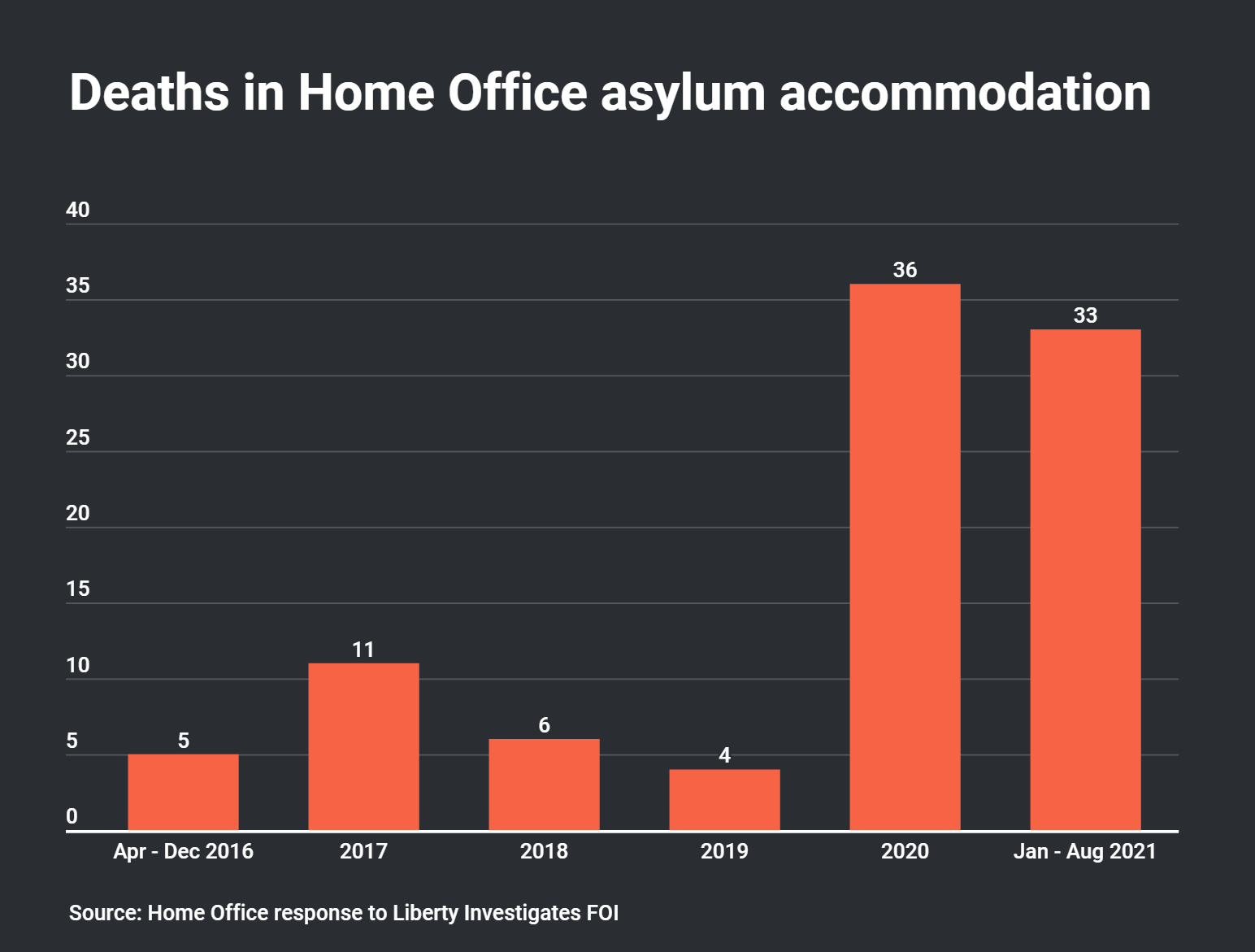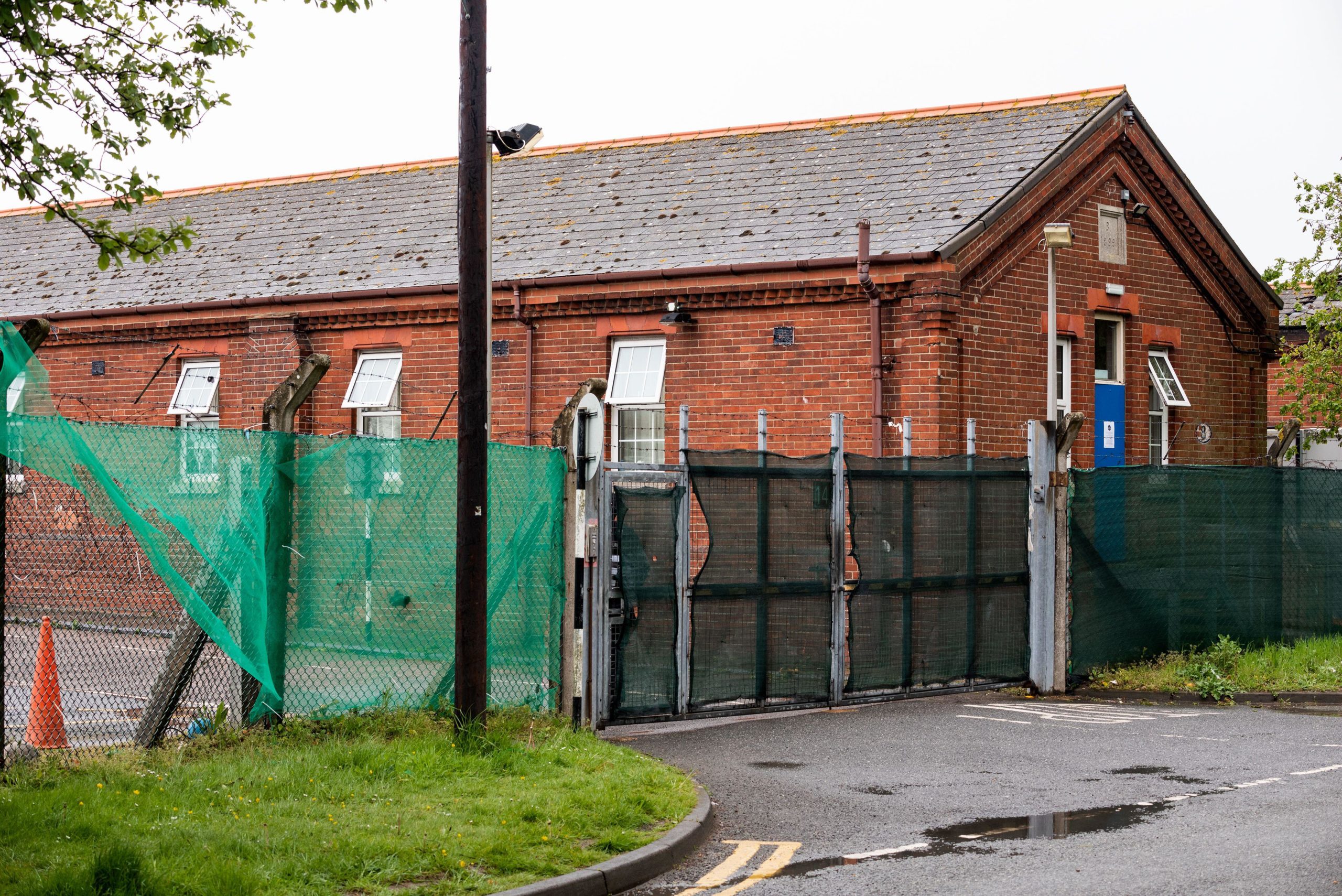95 died in asylum seeker accommodation in five years amid fears Home Office downplayed toll
Published on 24 October 2021
During the pandemic, many asylum-seekers were moved into remote hotels housing hundreds of people, with some reporting problems accessing basic medical help

Home Office accused of "staggering" discrepancies in asylum death figures
Reports Jessica Purkiss, Mirren Gidda, and Aaron Walawalkar, Liberty Investigates journalists; and Mark Townsend, Home Affairs editor of the Observer. Edited by Eleanor Rose, Liberty Investigates editor.



